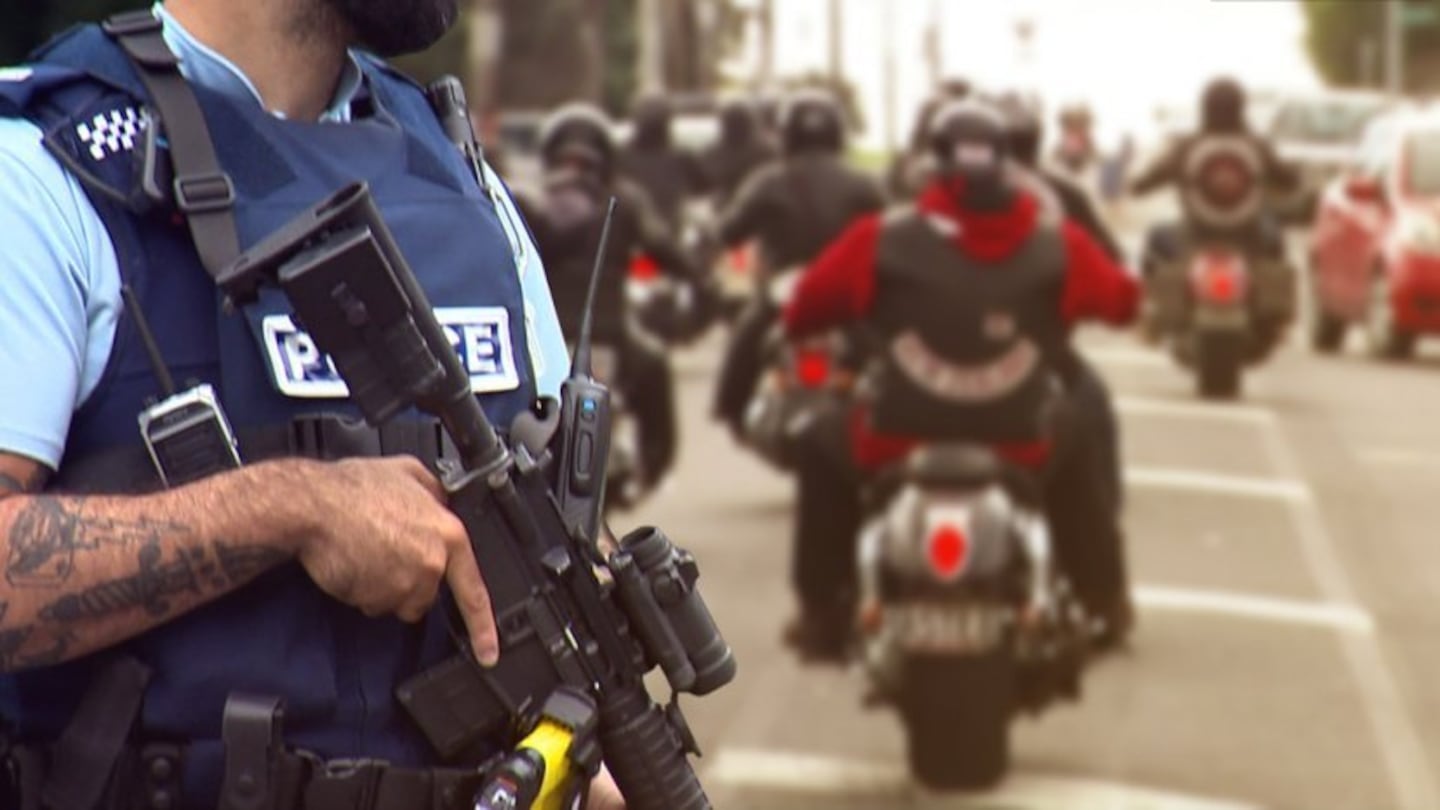New gang laws that took effect at midnight are under fire from experts who say they could exacerbate trauma and mistrust, particularly among Māori and Pasifika communities, while failing to deliver promised reductions in crime.
A new report by Ihi Research, released yesterday, challenges the effectiveness of the Gangs Act 2024, signed into law earlier this year and enforced by police within minutes of taking effect overnight.
The report, commissioned by police as part of the Understanding Policing Delivery programme, warns that the act’s new powers may worsen systemic issues and strain community relationships.
“This will especially impact those who may not be gang-affiliated but are within the whānau and tamariki of gang whānau,” Ihi Research director Dr Catherine Leonard said.
It echoes concerns by the Iwi Chairs Forum, which in August called for police to exercise discretion when enforcing the laws in consideration of tamariki and mokopuna in parts of Aotearoa where gang activity is entrenched.
The law, which expands restrictions on gang insignia and association, has been described as a step backwards by researchers, who argue it ignores the root causes of crime, such as inequity and poverty.
They warn it risks alienating younger generations and fostering unrest in already marginalised communities.
“For those on both sides who have spent significant time investing in positive relationships between gangs and police, the change in legislation is disheartening,” Leonard said.
Effectiveness in question
The research also casts doubt on the act’s ability to achieve its goals.
One academic involved in the study pointed to similar laws in Australia, where non-association orders have shown unclear results in reducing crime.
“… the one thing we can be certain of is that it won’t impact crime rates. … You could argue the whole thing is cosmetic,” the academic said.
Despite these concerns, Dr Leonard pointed to existing initiatives, such as the Gang Liaison Officers programme, that have shown success in reducing crime through collaboration and relationship-building.
“There is current work reducing gang crime … participants in our study didn’t want to see this work undone,” she said.
Relational policing key to progress
The research notes the importance of communication and collaboration between police and gang communities.
Several gang members interviewed acknowledged the value of relational policing, which prioritises dialogue and mutual respect.
“It’s that communication, it’s that stuff that happens in the background that’s actually changing what happens around here. Relationships are the key,” one participant said.
The report also emphasises the need for conflict resolution training, initiatives to protect tamariki, and a shift toward rehabilitation over incarceration.
The path forward
Dr Leonard believes addressing the systemic drivers of gang affiliation, such as poverty and trauma, is crucial for meaningful change.
“By focusing on relational policing and addressing the root causes of gang affiliation, our study suggests meaningful and lasting change can be achieved, ultimately benefiting both the police and the communities they serve,” she said.
The Understanding Policing Delivery programme was launched to help police build trust and confidence across diverse communities, acknowledging their unique experiences with law enforcement.



